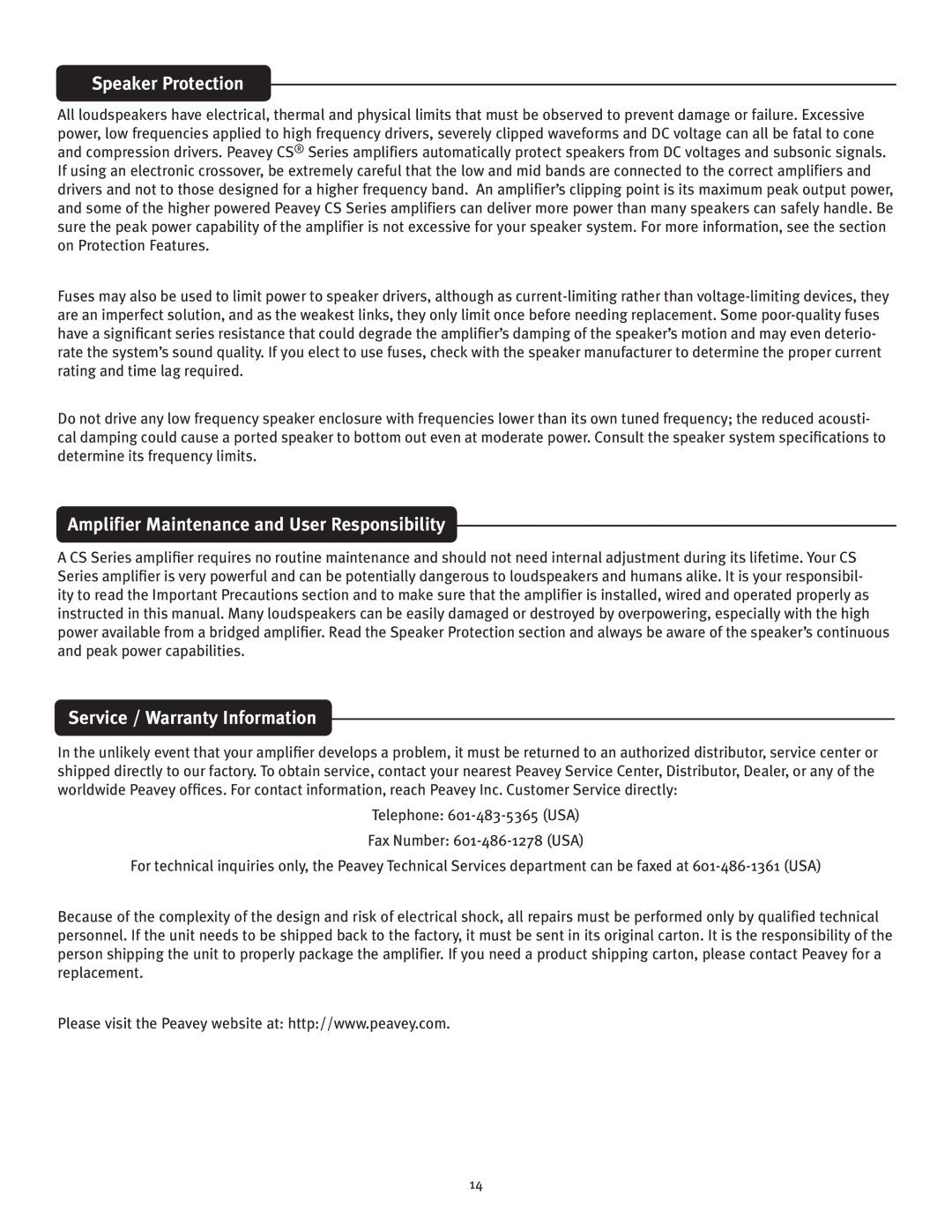
Speaker Protection
All loudspeakers have electrical, thermal and physical limits that must be observed to prevent damage or failure. Excessive power, low frequencies applied to high frequency drivers, severely clipped waveforms and DC voltage can all be fatal to cone and compression drivers. Peavey CS® Series amplifiers automatically protect speakers from DC voltages and subsonic signals. If using an electronic crossover, be extremely careful that the low and mid bands are connected to the correct amplifiers and drivers and not to those designed for a higher frequency band. An amplifier’s clipping point is its maximum peak output power, and some of the higher powered Peavey CS Series amplifiers can deliver more power than many speakers can safely handle. Be sure the peak power capability of the amplifier is not excessive for your speaker system. For more information, see the section on Protection Features.
Fuses may also be used to limit power to speaker drivers, although as
Do not drive any low frequency speaker enclosure with frequencies lower than its own tuned frequency; the reduced acousti- cal damping could cause a ported speaker to bottom out even at moderate power. Consult the speaker system specifications to determine its frequency limits.
Amplifier Maintenance and User Responsibility
A CS Series amplifier requires no routine maintenance and should not need internal adjustment during its lifetime. Your CS Series amplifier is very powerful and can be potentially dangerous to loudspeakers and humans alike. It is your responsibil- ity to read the Important Precautions section and to make sure that the amplifier is installed, wired and operated properly as instructed in this manual. Many loudspeakers can be easily damaged or destroyed by overpowering, especially with the high power available from a bridged amplifier. Read the Speaker Protection section and always be aware of the speaker’s continuous and peak power capabilities.
Service / Warranty Information
In the unlikely event that your amplifier develops a problem, it must be returned to an authorized distributor, service center or shipped directly to our factory. To obtain service, contact your nearest Peavey Service Center, Distributor, Dealer, or any of the worldwide Peavey offices. For contact information, reach Peavey Inc. Customer Service directly:
Telephone:
Fax Number:
For technical inquiries only, the Peavey Technical Services department can be faxed at
Because of the complexity of the design and risk of electrical shock, all repairs must be performed only by qualified technical personnel. If the unit needs to be shipped back to the factory, it must be sent in its original carton. It is the responsibility of the person shipping the unit to properly package the amplifier. If you need a product shipping carton, please contact Peavey for a replacement.
Please visit the Peavey website at: http://www.peavey.com.
14
